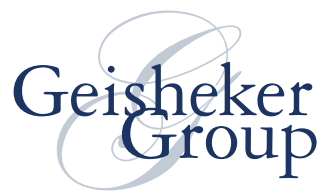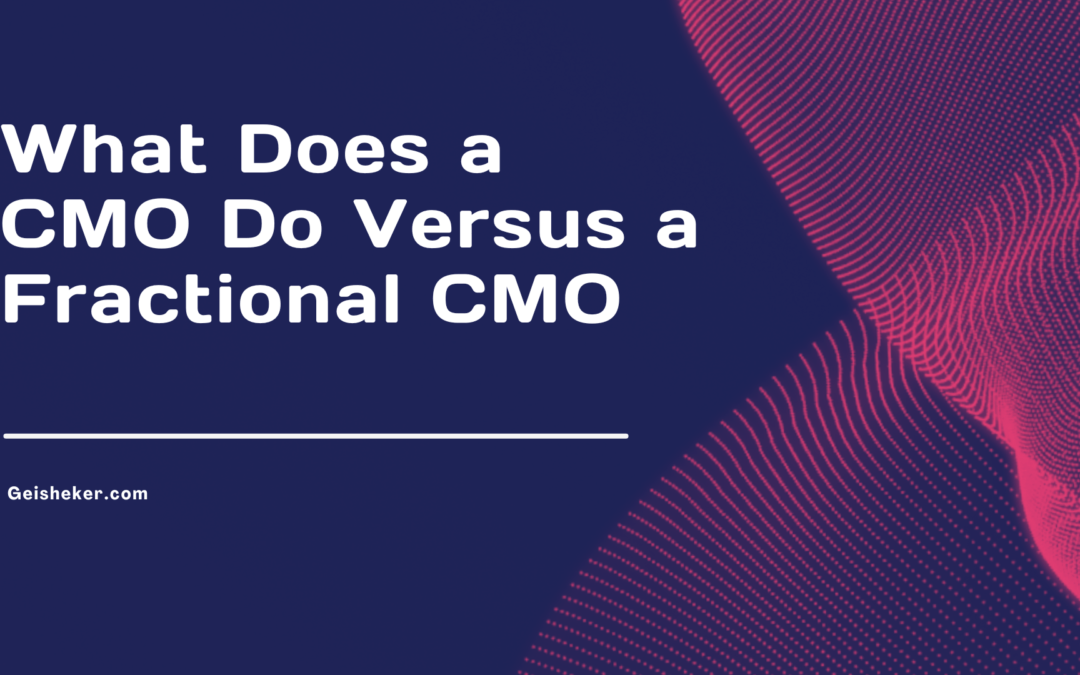A Chief Marketing Officer (CMO) and a Fractional CMO play essential yet distinct roles within an organization’s marketing strategy and operations. Understanding the key differences between these two critical positions can help businesses build effective marketing teams suited to their unique needs and objectives.
The CMO Role - Driving Marketing Vision and Strategy
The CMO is a full-time executive-level role, usually reporting directly to the CEO as a key leadership team member. As head of marketing, the CMO is responsible for developing data-driven marketing strategies and overseeing their execution across the organization.
Key responsibilities of a typical CMO include:
- Creating and Owning the Marketing Vision – The CMO crafts the overarching vision and mission for marketing tied directly to business goals. This guides strategies and campaigns.
- Managing Brand Strategy – CMOs steward the organization’s brand, messaging, creative assets, and positioning. This ensures brand consistency across channels.
- Leading Market Research – Through competitive analysis, market research, and customer insights, CMOs identify growth opportunities and shape strategies.
- Owning Campaign Development – CMOs manage the ideation, budgeting, execution, and analysis of integrated ad campaigns across media channels.
- Guiding Product Marketing – CMOs oversee product marketing managers and set positioning strategies for products and services.
- Measuring Performance – Data and analytics inform CMO decisions on spending, channel efficacy, messaging, and more. Success is measured against ROI.
- Managing Teams and Budgets – The marketing department, staff, and budget fall under the CMO’s leadership and authority. This spans a large team.
CMOs take an aerial view of the marketing landscape, setting North Star goals and strategic frameworks for reaching them. With a finger on the pulse of the customer at all times, they rally the organization around customer-centricity.
While no two CMO job descriptions are identical, they universally own the brand vision and drive growth through integrated marketing innovation and excellence in execution managed through large teams and budgets.
The Role of the Fractional CMO - Specialized Marketing Leadership
Hiring a full-time CMO is unnecessary, financially out of reach, or both for many organizations. This gave rise to the fractional CMO model. Like fractionally owned vacation homes, fractional CMOs provide marketing leadership and expertise by the slice.
A fractional CMO is an on-demand marketing expert available on a project, retainer, or hourly basis. In a part-time but highly strategic role, fractional CMOs complement lean marketing teams or fill temporary executive gaps.
Typical fractional CMO engagements center on specialized initiatives like:
- Go-to-Market Strategy Development – For companies launching new products or entering new markets, fractional CMOs map targeted GTM plans, positioning, and messaging.
- Omnichannel Campaign Creation – Fractional CMOs design and execute integrated, metrics-driven campaigns across channels from concept to completion.
- Rebranding Projects – During rebranding efforts, fractional CMOs lead research, branding, rollout, and change management.
- Martech Stack Optimization – Fractional CMOs audit existing tech stacks and processes to identify and address gaps for improvement.
- Team Development – Via mentoring sessions, fractional CMOs impart strategic and tactical knowledge to help elevate in-house marketing teams.
- Presentation Coaching – For key presentations and pitches, fractional CMOs guide content flow, visual assets, delivery, and more.
The breadth of knowledge and experience of fractional CMOs allows them to drive results across virtually any marketing challenge a company faces. Companies leverage the on-tap flexibility of fractional CMO engagements to amplify marketing productivity and move the needle on KPIs.
Rather than owning an end-to-end marketing strategy like a CMO, the fractional CMO spearheads niche initiatives with inherent start and end dates.
Key Differences Between CMOs and Fractional CMOs
While both CMOs and fractional CMOs provide marketing leadership, clarifying distinctions between these two roles shines a light on their contrasting value propositions.
Several key differences include:
Commitment Level
- CMOs work full-time (40+ hours weekly), while fractional CMOs engage part-time, as needed.
Scope
- As the marketing head, the CMO oversees company-wide strategies, budgets, and teams, while a fractional CMO executes specialized projects.
Availability
- CMOs provide daily, consistent marketing leadership compared to the on-and-off availability of most fractional CMOs.
- Full-time CMO salaries exceed $300K+ annually compared to a fractional CMO hourly rate of around $250.
Responsibilities
- CMOs own long-term strategy setting, budgeting, and team leadership, while fractional CMOs focus narrowly on specific marketing initiatives.
Recognizing these core differences makes identifying ideal needs-based fits at the CMO or fractional CMO level easier.
Deciding Between a Full-Time vs. Fractional CMO
Hiring an executive-level CMO or more targeted fractional CMO engagement comes down to a company’s budget, existing marketing capabilities, and strategic vision. While many factors play a role, asking several key questions can help determine ideal fits.
Questions to Assess Full-Time vs. Fractional CMO Requirements
Does our current marketing strategy align with core business goals?
- Misalignment signals a need for an overarching CMO vision. Fractional help may suffice if broadly on track.
Do we lack marketing resources and personnel?
- Having no marketing team points strongly toward a CMO to build one out. Fractional CMOs can help guide small teams.
Can our budget support a $300K+ executive salary?
- If not, fractional CMO guidance provides a more affordable alternative.
Does our CEO want a daily marketing leadership presence?
- Consistent access requirements warrant a full-time CMO role.
Are our marketing capabilities stunted without specialized skills?
- Lacking niche disciplines like CX design or motion graphics may fit a fractional CMO sweet spot.
Is our long-term brand positioning and growth unclear?
- Haziness around future brand aspirations calls for an experienced CMO at the helm.
While budget, capabilities, and strategy drive most decisions, company stage, industry type, and growth ambitions also chart courses toward either CMO model.
Early-stage startups likely need fractional CMOs to provide flexible support on key initiatives without sizable teams or budgets to manage.
Established enterprises exploring expansion or new verticals lean toward full-time CMOs who spearhead marketing shifts while ensuring consistency. Companies focusing solely on optimizing existing revenue streams may not need a CMO.
There is no one size fits all approach – different company contexts demand different types of marketing leadership.
Optimizing Marketing Leadership for Business Goals
For any company prioritizing marketing excellence and ROI, both CMOs and fractional CMOs can elevate strategies, unlock growth, and strengthen capabilities. However selecting one over the other requires assessing budget, team experience, business objectives, and long-term plans to determine which model best fits a company’s needs.
While hiring an accomplished CMO solidifies reliable marketing leadership, fractional CMO engagements more affordably inject targeted expertise into existing teams.
Understanding these options in the context of specific requirements, constraints, and goals allows businesses to optimize spending on marketing talent while ensuring necessary vision and oversight fuels data-driven growth.
Whether spearheading marketing full-time or deploying specialized fractional guidance, embracing the type of leadership a company requires at each stage manifests in savvy brand strategies, compelling campaigns, and ultimately, enhanced customer experiences that drive revenue gains.
Hire a Leading B2B SaaS Fractional CMO
If your company needs a B2B SaaS fractional CMO, consider working with Peter Geisheker. Peter has been providing Fractional CMO services for over 20 years and has expertise in growth tactics and conversion optimization. View Peter’s SaaS Fractional CMO case studies.


